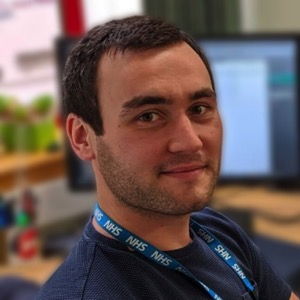Peninsula Collaboration for Health Operational Research and Data Science (PenCHORD)
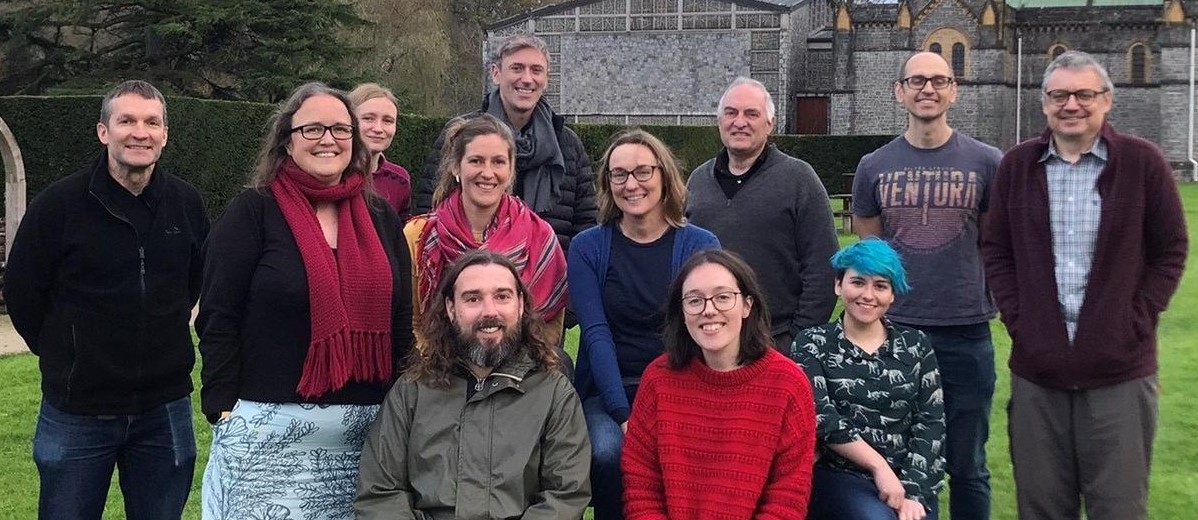
PenCHORD (the Peninsula Collaboration for Health Operational Research and Data Science) are specialists in helping healthcare professionals, commissioners and patients make informed decisions about change in the NHS. The team uses advanced quantitative techniques to model healthcare services and predict the impact of change.
Their past projects have covered a wide range of health services including stroke, cancer, mental health, neonatal health and surgery scheduling.
PenCHORD’s areas of expertise include:
- modelling patient pathways and the impact of proposed changes
- capacity and resource planning in acute and community services
- waiting list management and patient scheduling
- location and capacity analysis of outpatient services
- artificial intelligence (AI) techniques including machine learning and natural language processing
The PenCHORD Team lead the national Health Service Modelling Associates (HSMA) Programme which aims to build a culture and skills base through which simulation and modelling techniques are routinely used to support decisions within health, social care, and policing organisations. Free places on this programme are available every year and are open to health, care and policing professionals in England.
Contact us: penchord@exeter.ac.uk
Meet the team
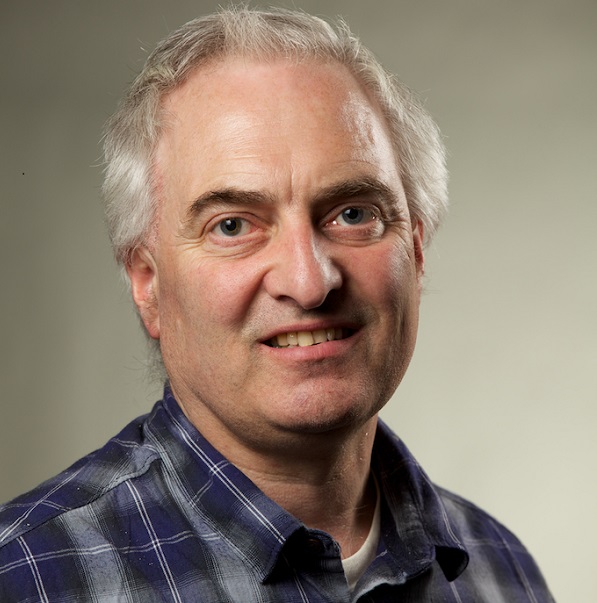
Martin Pitt
Professor of Applied Healthcare Modelling and Data Science
Martin is Director of PenCHORD, a team of researchers within NIHR ARC South West Peninsula (PenARC) which has been effective in developing a range of applied models of healthcare collaborating directly with health organisations to improve services in the South West.
His main interest is the effective implementation of modelling, simulation and analytic solutions to inform health policy and the evaluation of its impact. A particular focus is the communication of information and visualisation techniques to facilitate understanding across organisational and cultural boundaries.
In 2004 he helped establish MASHnet which aims to promote closer co-operation between professionals in health, research and commercial communities to improve the application of healthcare modelling.
His early academic background is in psychology, cognitive science and human-computer interaction. He completed his doctorate at the Medical Informatics Group at Manchester University developing an interactive multimedia system for use by healthcare consultants.
In 1998 he joined Exeter University as a lecturer in media computing before joining PenTAG in 2003 where he helped develop a range of economic models in the context of health technology assessment.

Tom Monks
Associate Professor of Health Data Science
Dr Thomas Monks is Associate Professor of Health Data Science at Exeter Medical School and IDSAI. He is a Turing Fellow at the Alan Turing Institute and an Honorary Senior Research Associate at the Clinical Operational Research Unit, UCL. His research interests are enhancing decision support in the NHS via computational methods, modelling stochastic health care delivery, and the real-time and data driven problems found in emergency care. His current research aims to combine computer simulation of health systems with machine learning, and to advance open science within his discipline. Prior to joining University of Exeter he led an NIHR funded data science team at the University of Southampton that worked directly with the NHS.

Chrissie Walker
PenCHORD Research and Operations Manager
Chrissie has extensive project management and operational experience in both commercial and academic settings. She joined PenCHORD in late 2021 with responsibility for operational oversight of the group, including HR, finance, governance, and monitoring of research outputs and outcomes.

Mike Allen
Senior Research Fellow in Applied Healthcare Modelling and Data Science
Mike's main interests are the application of modeling and machine learning to understand and improve clinical pathways. Work, for example, includes modeling of the acute stroke pathway, with machine learning being used to understand and predict clinical decision-making, allowing us to ask questions such as “What treatment would this patient receive if they went to another hospital?”.
He also has a general interest in how ‘deep reinforcement learning’ may be applied to healthcare. Can, for example, the Deep Mind agents that learned to play Go and Chess learn how to manage escalation/de-escalation policies in a hospital?

Robert Challen
Honorary Associate Research Fellow
Rob trained as a medical doctor and worked in paediatrics and neonatology in the NHS before moving into health informatics, where he supported the digitisation of healthcare through the implementation of clinical terminology standards. He has expertise in clinical decision support from his time as Head of Health Informatics at the BMJ Evidence Centre. He completed an applied mathematics PhD at the University of Exeter. This was initially focussed on extracting meaningful data from the natural language of hospital patient records, through his industry partner Taunton NHS foundation trust. Ultimately his PhD was largely on the epidemiology of COVID, and in particular the spread of genomic variants, as he became heavily involved in the SPI-M subgroup of SAGE, which informed the UK government’s response to the SARS-CoV-2 pandemic. Post-pandemic he has been working at the Bristol Vaccine Centre monitoring effectiveness of vaccines and incidence trends of acute lower respiratory tract disease, including COVID and Pneumococcus. Independently he has supported the Diabetes team at Exeter in building an instance of CPRD data and making that accessible through R.

Daniel Chalk
Senior Research Fellow in Applied Healthcare Modelling and Analysis
Dan leads the development and delivery of the PenARC Health Service Modelling Associates (HSMA) Programme – an innovative and impactful programme in which health and social care staff are released from their usual role for a day a week for a year to undertake a modelling or data science project of importance for their organisation. The team provide training and ongoing mentoring support for HSMAs, and previous HSMA projects have led to £multi-million investments in mental health services and emergency department facilities, as well as the establishment of new in-house Operational Research teams in NHS organisations across the region.
Dan's research focuses on using modelling, simulation and data science techniques to help provide evidence to solve problems in health and social care settings, and inform decision-making. His areas of expertise include the use of Discrete Event Simulation to model patient pathways, System Dynamics to model whole systems, Agent-Based Simulation to model emergent population dynamics from individual-level behaviours and machine learning methods to train machines to replicate decision-making.
His prior projects have led to significant impacts for patients and services across the region, including significant reductions in referral to treatment time for muscle-invasive bladder cancer patients in Cornwall, and close work with Kernow CCG to improve the provision of urgent and emergency care provision across Cornwall.

Amy Coombe
PenCHORD Administrator
Amy supports the PenCHORD group, particularly the Health Service Modelling Associate (HSMA) training programme.
She has previous experience working across education, environment and social care sectors.

Elliott Coyne
Postdoctoral Research Associate
Elliott joined PenCHORD in September 2022 to assist in the development and delivery of the innovative Health Service Modelling Associates (HSMA) Programme. Having recently completed an MSc in Health Data Science at The University of Exeter, he is keen to use his technical and coaching skills to assist those who are embarking on their data science journey.
Originally qualifying as as a pharmacist, Elliott has had a varied career in health, across a variety of settings (public and private healthcare; both within hospital and retail across England, New Zealand, and Australia). Therefore, understanding many of the pressures felt by those working at the coal face of health services provision

Alison Harper
Research Fellow
Alison joined PenCHORD in 2020, and has an interest in applied health and social care modelling, simulation and data analytics to improve understanding and provide decision-support for health and care services.
She has a clinical background in physiotherapy from the University of Queensland (Australia), an MSc in Human Factors (applied psychology), and completed her PhD at the University of Exeter Business School. She has a particular interest in how people interact with technology to inform action.
In 2004 he helped establish MASHnet which aims to promote closer cooperation between professionals in health, research and commercial communities to improve the application of healthcare modelling.
His early academic background is in psychology, cognitive science and human-computer interaction. He completed his doctorate at the Medical Informatics Group at Manchester University developing an interactive multimedia system for use by healthcare consultants.
In 1998 he joined Exeter University as a lecturer in media computing before joining PenTAG in 2003 where he helped develop a range of economic models in the context of health technology assessment.

Amy Heather
Postdoctoral Research Associate
Amy joined PenCHORD in October 2022. She is currently working on Kailo, a research project focused on preventing poor adolescent mental health through targeting the social determinants of health. Prior to joining PenCHORD, she completed an MSc Health Data Science degree at the University of Exeter.

Anna Laws
Research Associate
Anna joined PenARC in May 2022 when she joined the Stroke Audit Machine Learning project (SAMueL). Her role is to implement modelling and analysis techniques that will investigate how changes to clinical decision-making could affect patient outcomes. The techniques include machine learning and clinical pathway simulations. Her background is in astrophysics, where she combined observations with radiative transfer modelling to investigate the dust structures caused by forming planets in protoplanetary discs.
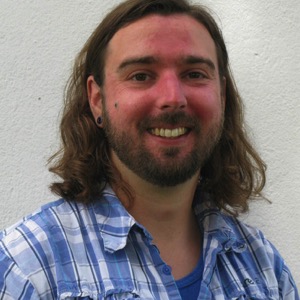
Sean Manzi
Research Fellow
Sean's role within the PenCHORD team is to apply operational research methods to help with the understanding and improvement of healthcare service provision. Another aspect of his role is to understand how we can evaluate the relationship between the healthcare professional and the researcher to enhance the successful implementation of research outputs. Having joined the PenCHORD team in November 2014 with a background in psychology and applied healthcare research, he looks forward to exploring the boundary between healthcare systems and human behaviour in the future.
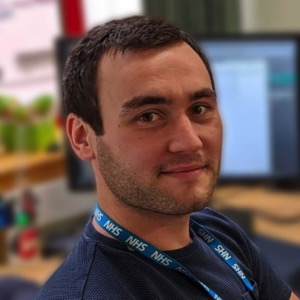
Andy Mayne
Honorary Associate Research Fellow
Andy is the Lead Data Scientist for the Somerset Integrated Care System with a remit to introduce Data Science and conduct Operational Research. He has a particular interest in non-elective care including patient flow, major trauma, emergency departments, critical care, and prehospital care (999).
In his PenCHORD role he is researching whether Discrete Event Simulation and Causal Impact Analysis can be combined to better identify meaningful change in a complex healthcare system. Alongside this work he helps to facilitate research between PenCHORD and Somerset ICS. For the past two years he has been a mentor on the Health Service Modelling Associates (HSMA) scheme, helping to train the next generation of Data Scientists in Healthcare.
Read the preprint Forecasting the daily demand for emergency medical ambulances in England and Wales: A benchmark model and external validation

Kerry Pearn
Research Fellow
Kerry joined PenARC in September 2014 to work within PenCHORD as an Operational Researcher. Her key role is to apply mathematical optimisation techniques to improve the efficiency and quality of healthcare systems. She is currently working on the Stroke Audit Machine Learning project (SAMueL) project. Prior to joining PenARC, she gained a Mathematics and Sports Science BSc degree from Birmingham University and pursued her enjoyment of Operational Research at Silsoe Research Institute and Cranfield University, applying mathematical modelling techniques to optimise agricultural systems.

Sebastian Rabucha
Honorary Associate Research Fellow
Sebastian is an Assistant Professor of Operations Management at the University of Wupperta and joined PenCHORD as an Honorary Associate in 2022.
His research supports decision making in the health care sector using data. Predominantly he works in operating room planning, process management in Emergency Departments, and efficient planning and management of resources such as inpatient or intensive care beds or staff.

Sammi Rosser
Honorary Associate Research Fellow
Sammi is a Senior Data Scientist at Devon Partnership Trust working with PenCHORD to identify opportunities for the application of data science and operational research to improve urgent and inpatient mental health care. Her interests extend to the wider mental health system, with a particular interest in neurodiversity.
She is currently working on developing dashboards to better highlight opportunities for improvement across the urgent mental healthcare pathway and look at patient flow. She's developing custom visuals for complex information and working with NHS staff to find ways to make the data we can provide more useful to them.
Prior to joining PenCHORD, she completed an MSc in Health Data Science at the University of Exeter and then worked for Devon Partnership Trust as a Senior Information Analyst.

